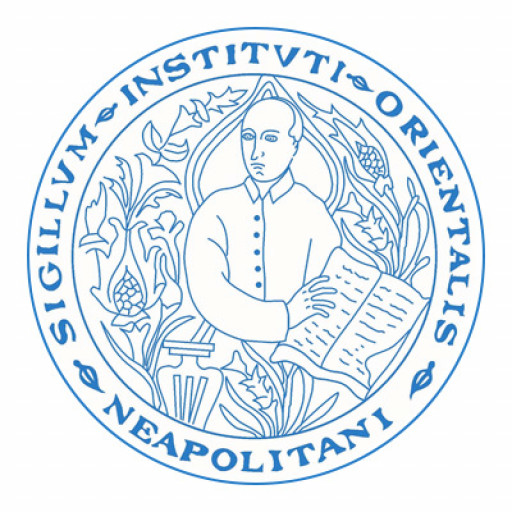Description
Diploma in Indigenous Archaeology study involves breadth, depth and complexity covering Archaeological planning and initiation of various approaches to Indigenous archaeological skills or knowledge applications across a broad range of technical and/or management requirements, together with its evaluation and co-ordination in Cultural Heritage Management.
Diploma holders will be capable of self-directed application of knowledge and skills, with substantial depth in some areas where judgement is required in planning and selecting appropriate equipment, services and techniques.
A diploma student will participate in the development of strategic initiatives and take personal responsibility and exercise autonomy in performing complex technical operations or organising others. Participation in teams both in routine work and undertaking planning and evaluation tasks is expected. Group or team coordination may be involved.
Career Opportunities
Graduates can be found working in a wide range of departments and services: within universities; in local, state and federal government and non-government agencies; and in private industry as heritage specialists.
Detailed Course Facts
Application deadline You are advised to apply as early as possible Tuition fee- EUR 12680 Year (National)
- EUR 12680 Year (International)
Duration full-time 12 months Languages Take an IELTS test
- English
Course Content
Course Aims
To provide students with the practical knowledge, understanding and skills so they can manage the conservation of the archaeological traces of the Indigenous past, either through conservation or provision of a permanent record of destroyed cultural heritage.
Learning Outcomes
Upon completion of this course, students will be able to:
Graduate Attributes
Knowledge of a Discipline
Students will gain an overall knowledge of the basics of Indigenous archaeology and be able to produce logical and structured arguments supported by relevant evidence.
Communication Skills
Through a variety of assessment methods, written, oral and visual communication skills will be taught, assessed and practised.
Global Perspectives
By studying Indigenous archaeology and its context elsewhere in the world, this attribute will be taught, assessed and practised.
Information Literacy
Critical and effective use of information retrieval skills, using paper-based and electronic resources in relevant languages, will be taught, assessed and practised.
Life-Long Learning
By demonstrating responsiveness to the changing theoretical, methodological, ethical and social contexts of Indigenous archaeology, this attribute will be taught and assessed.
Problem Solving
Understanding and applying appropriate scholarly, theoretical and scientific principles and concepts to solving archaeological problems will be taught, assessed and practised.
Social Responsibility
Through critical appraisal of their own and other's arguments and opinions in all aspects of professional practice, this attribute will be taught and assessed.
Team Work
Through collaborating effectively in teams in the field in the laboratory and on-line, this attribute will be taught, assessed and practised.
English Language Requirements
IELTS band : 6
To study at this university, you have to speak English. We advice you to
take an IELTS test. More About IELTSRequirements
A candidate shall be qualified for admission (see Admission Rule Undergraduate Policy).
Work Experience
No work experience is required.
Related Scholarships*
- Academic Excellence Scholarship
"The Academic Excellence Scholarship can provide up to a 50 % reduction in tuition per semester. These scholarships will be renewed if the student maintains superior academic performance during each semester of their 3-year Bachelor programme. The scholarship will be directly applied to the student’s tuition fees."
- Alumni Study Travel Fund
Scholarships for students who are already attending the University of Reading.
- Amsterdam Merit Scholarships
The University of Amsterdam aims to attract the world’s brightest students to its international classrooms. Outstanding students from outside the European Economic Area can apply for an Amsterdam Merit Scholarship.
* The scholarships shown on this page are suggestions first and foremost. They could be offered by other organisations than University of New England.
The Indigenous Archaeology program at the University of New England offers students an in-depth exploration of the archaeological practices, traditions, and heritage management of Indigenous peoples in Australia. This program is designed to provide students with a comprehensive understanding of Indigenous cultural heritage, emphasizing respectful engagement, ethical practices, and collaborative research methods. Students will study various aspects of Indigenous history, traditional knowledge systems, and contemporary issues related to cultural preservation and land management. The curriculum includes hands-on archaeological fieldwork, analysis of artefacts, and studies in Indigenous epistemologies, aiming to foster a well-rounded perspective on the importance of Indigenous contributions to Australia’s archaeological record. The program also emphasizes the development of critical skills in heritage management, policy development, and community consultation, preparing graduates for careers in cultural heritage organizations, archaeological consulting, or further academic research. Throughout their studies, students are encouraged to engage with Indigenous communities and stakeholders, ensuring that their work respects Indigenous rights and perspectives. The program is suitable for students interested in archaeology, anthropology, history, cultural heritage management, and related fields, providing a unique combination of academic knowledge and practical experience. Graduates of this program will be equipped to contribute meaningfully to the preservation and promotion of Indigenous heritage and to advocate for sustainable and ethically responsible heritage practices in Australia. The program’s structure integrates theoretical coursework, fieldwork, and community engagement activities, fostering a multidisciplinary approach to Indigenous archaeology. Overall, the Indigenous Archaeology program at UNE aims to produce culturally conscious graduates who can support the conservation of Indigenous heritage and promote awareness of Indigenous history and culture through research, education, and policy advocacy.








